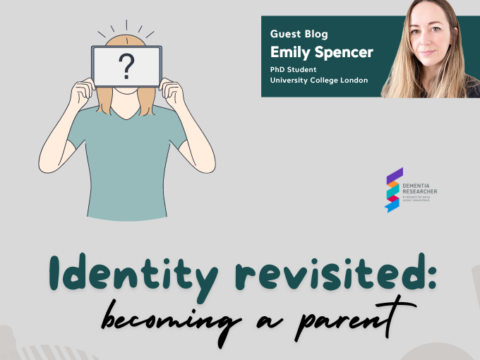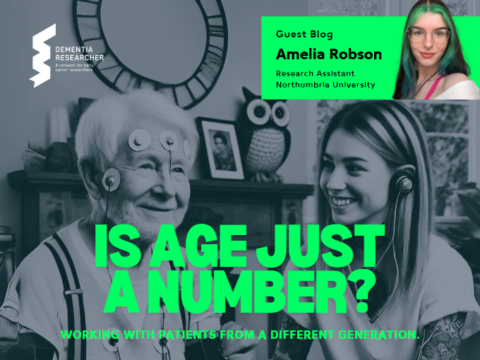It used to be the norm that the natural progression after completing a PhD was on to a postdoctoral position and then a lectureship, ascending through the hierarchy of academia. However, the landscape of post-PhD careers no longer looks so linear, with many people leaving academia to follow non-academic career paths either through choice or through circumstance. In this blog I will discuss when is the right time to think about leaving academia, and how to return if you change your mind.
As a researcher working in the biosciences, my perspective is naturally going to be orientated around experiences which may be specific to STEM (Science, Technology, Engineering, Mathematics), but I hope some things I discuss will be relevant to colleagues working in the Arts and Humanities. I’ll begin with an overview of why I left academia and my experience of returning. I was coming to the end of my first postdoc contract and applying for other postdoc positions, but I was also keeping an open mind for other opportunities as I wasn’t particularly wedded to the idea of remaining in research. I applied for a position as a regional programme manager at the NC3Rs, a UK-based research funder, which I felt would be a good chance to experience academia from another perspective. The decision for me to leave academia was one of open-minded exploration, rather than because I had a particularly negative view of academia or felt I had discovered I loved doing something else. During my time at the NC3Rs I was involved in a diverse range of activities, such as writing guidance documents, sitting on ethics committees, organising events, and generally providing support to researchers and animal facility staff. I really enjoyed my role and in many respects the thing which appealed to me, which was the wide range of tasks and activities I could be involved in, was also what appealed to me about academia. After two years, I decided to return to academia because the large amount of travelling between cities was taking its toll. I managed to get back into research quite easily although I did have anxiety about whether I would remember how to do something basic, like pipetting! I feel like if I had been out of research any longer than two years, it might have been too long for me to feel comfortable returning.
Now that I have shared why I left academia, are other researchers who leave also doing so for the same reasons?
Although this wasn’t my experience, the majority of people who I have spoken to who have left academia post-PhD fall into one of two categories: They have either had a negative experience during their PhD or first postdoc position which often involves a toxic work environment and/or an unsupportive supervisor; or they have discovered what they enjoy doing such as writing or lab work, for example, and they want to solely pursue that without the baggage of all the other things which academia demands.
If those who leave academia generally fall into one of these two categories, when is the right time leave? Regardless of the motivation behind the decision to leave, those who I have spoken to who have left academia have typically done so either straight after completing their PhD, or after a short first postdoc position. If your only experience of research is in a toxic environment with a bad supervisor, why would you want to stay in academia? It would be easy to assume, and indeed others may tell you, that this is just what academia is like, and unfortunately an often perpetuated false narrative is that those who stay in academia are the most resilient ones. This suggests that those who have left lack resilience, but if they’ve left because they’ve had to endure a toxic and unsupportive work environment, I believe that shows incredible resilience. I can empathise with wanting to leave academia after such an experience, but unless you know for certain that this career isn’t for you, I would suggest considering a postdoc position in another lab, one where you can perhaps find out beforehand what the supervisor and work conditions are like. This will allow you to experience academia in a more supportive environment, and then if you still decide not to pursue this career you will know it is a decision that hasn’t essentially been made for you.
One of the greatest things about doing a PhD is being allowed the freedom to develop your interests and skills irrespective of your research topic.

Generally speaking, the salaries in industry are 1.5 to 2 times higher compared to academia.
Some people will discover they are particularly drawn to one of these skills, such as writing, and may decide to pursue that post-PhD. I would recommend keeping an open mind and explore the things you are interested in, whether it is academic related or not. Supervisors must do better at not only supporting this exploration of skills and interests, but they should actively encourage it. I would like to see the description of non-academic careers change because they are often referred to as “alternative careers” but that reinforces a false narrative that the linear progression in academia, from PhD to postdoc to lecturer and beyond, is the norm but that does not reflect most people’s realities. There should not be pressure to follow a linear career track and we should view a PhD as training for a variety of careers with none of them being considered “alternative”. They are valid and legitimate careers, with many roles in funding or academic writing, for example, actually requiring a PhD. Discovering that you particularly enjoy one part of academia may happen early on in your PhD, or during your first postdoc position, but it can be difficult to know when the right time is to leave academia to pursue it. For some it can seem like the right thing to do once they have completed their PhD, but others may feel like they must at least complete one postdoc position in order to be certain before leaving what is perceived to be the natural career track post-PhD. I would recommend following what you’re interested in, even if this means applying for roles outside of academia whilst also considering postdoc positions and then seeing what comes your way first.
So what if, like me, you change your mind and decide to return to academia? You might hear some people say that once you leave academia you can never go back. Well this is clearly not true because here I am and there’s nothing special about me! However, I think there might be a time-limit particularly in the biosciences where technical skills can diminish the longer you are away. For me, two years was a sufficient time to be out of the lab and not lose my skills, but this might be different if you’ve left academia to work in industry, for example, and been able to maintain many of your relevant skills. When applying for jobs I think it’s helpful to explain in a cover letter what you have gained from your role outside of academia and why you wish to return. I have done this previously in my applications, and then expanded on it during interviews focusing on all the reasons why working for the NC3Rs has made me a better scientist, more so than if I had just done another postdoc in those two years.
My hope is that writing this blog goes some way in normalising discussions of leaving and returning to academia. I would like to see institutions that organise workshops and seminars around non-academic careers stop advertising them as “alternative”. Many PhD students and postdocs do not care about becoming professors, even if they want to stay in academia. Supervisors, therefore, need to better support their supervisees in giving them the space to find out what they want to do and then the freedom to pursue it.

Dr Kamar Ameen-Al
Author
Dr Kamar Ameen-Ali is a Research Associate at University of Glasgow, exploring how neuroinflammation following traumatic brain injury contributes to the progression of neurodegenerative diseases that lead to dementia. Having first pursued a career as an NHS Psychologist, Kamar went back to University in Durham to look at rodent behavioural tasks to completed her PhD, and then worked as a regional Programme Manager for NC3Rs. Kamar brings a wealth of experience and writes on a range of topics from her time in the NHS, working for a Research Funder and from her work and life in the lab.

 Print This Post
Print This Post




